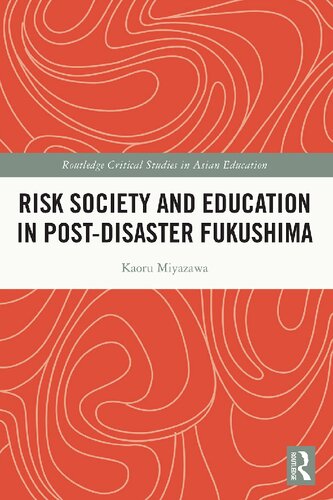

Most ebook files are in PDF format, so you can easily read them using various software such as Foxit Reader or directly on the Google Chrome browser.
Some ebook files are released by publishers in other formats such as .awz, .mobi, .epub, .fb2, etc. You may need to install specific software to read these formats on mobile/PC, such as Calibre.
Please read the tutorial at this link: https://ebookbell.com/faq
We offer FREE conversion to the popular formats you request; however, this may take some time. Therefore, right after payment, please email us, and we will try to provide the service as quickly as possible.
For some exceptional file formats or broken links (if any), please refrain from opening any disputes. Instead, email us first, and we will try to assist within a maximum of 6 hours.
EbookBell Team

0.0
0 reviewsIn response to the explosion of the Fukushima Daiichi power plant in March 2011, this book examines how the concept of a risk society was handled in the various education programs implemented in post-disaster Fukushima.
The explosion and subsequent radiation contamination that affected the biosphere of the Fukushima region and beyond, revealed that we live in a risk society. Despite this revelation, official discourses in Fukushima have been geared strictly toward the future, with the aim of restoring communities and resuming development projects. Based on the ethnographic data the author collected in Fukushima between 2013 and 2016, various contested emotions emerged in those education spaces as students and teachers remembered their romanticized and difficult past and dealt with the challenges presented by the risk society in their present lives. The emotionally-charged interactions between past and present also shaped their vision of their future community and of the actions they might take. The dialogues and actions that took places in these education spaces encourage readers to examine the meaning of development and question the basic assumptions and methods of education as society shifts to a risk society.
A valuable resource for scholars and students in the fields of globalization and education, curriculum studies, sociology of education, and Japanese studies.